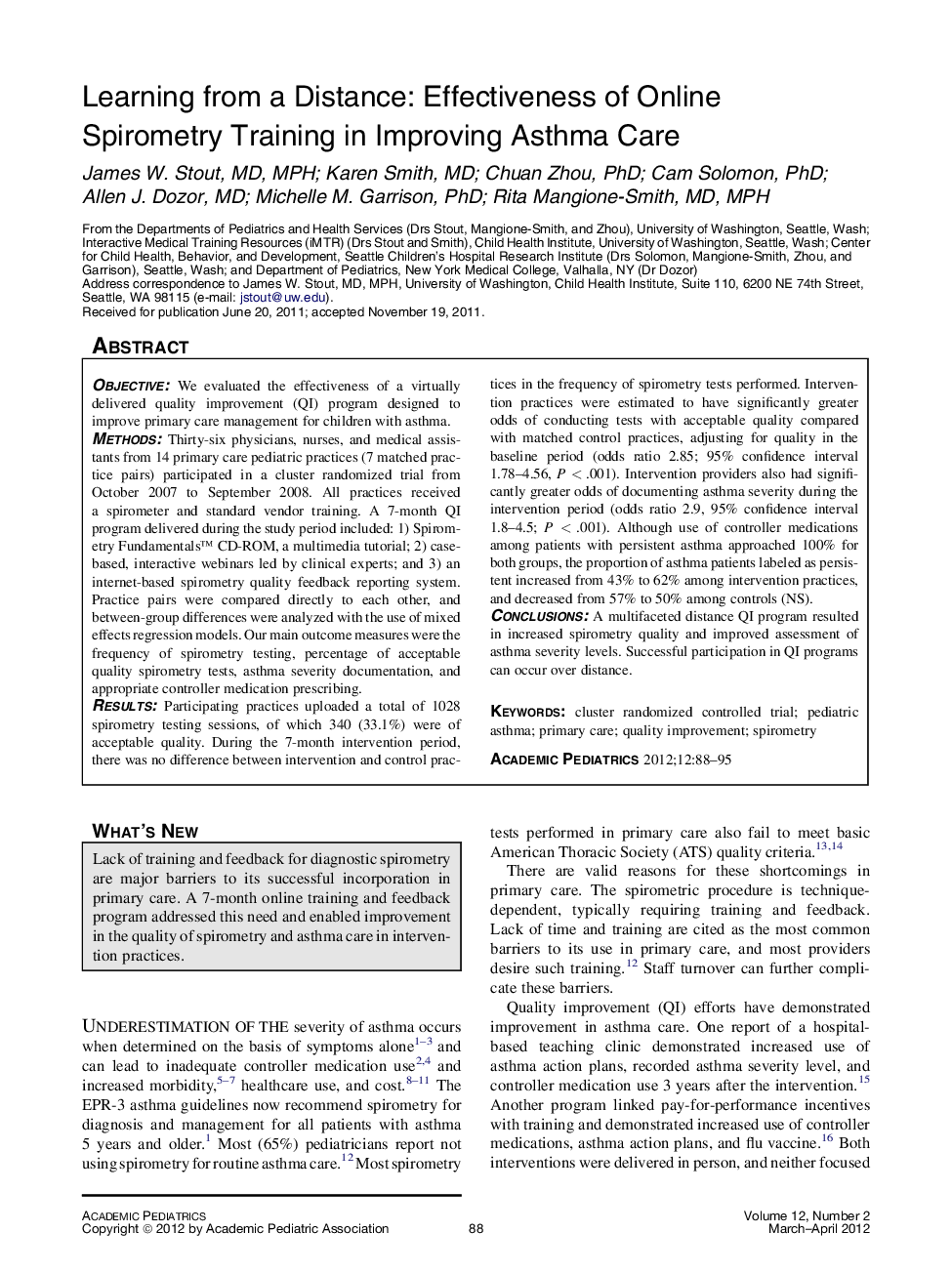| کد مقاله | کد نشریه | سال انتشار | مقاله انگلیسی | نسخه تمام متن |
|---|---|---|---|---|
| 4139903 | 1272225 | 2012 | 8 صفحه PDF | دانلود رایگان |

ObjectiveWe evaluated the effectiveness of a virtually delivered quality improvement (QI) program designed to improve primary care management for children with asthma.MethodsThirty-six physicians, nurses, and medical assistants from 14 primary care pediatric practices (7 matched practice pairs) participated in a cluster randomized trial from October 2007 to September 2008. All practices received a spirometer and standard vendor training. A 7-month QI program delivered during the study period included: 1) Spirometry Fundamentals™ CD-ROM, a multimedia tutorial; 2) case-based, interactive webinars led by clinical experts; and 3) an internet-based spirometry quality feedback reporting system. Practice pairs were compared directly to each other, and between-group differences were analyzed with the use of mixed effects regression models. Our main outcome measures were the frequency of spirometry testing, percentage of acceptable quality spirometry tests, asthma severity documentation, and appropriate controller medication prescribing.ResultsParticipating practices uploaded a total of 1028 spirometry testing sessions, of which 340 (33.1%) were of acceptable quality. During the 7-month intervention period, there was no difference between intervention and control practices in the frequency of spirometry tests performed. Intervention practices were estimated to have significantly greater odds of conducting tests with acceptable quality compared with matched control practices, adjusting for quality in the baseline period (odds ratio 2.85; 95% confidence interval 1.78–4.56, P < .001). Intervention providers also had significantly greater odds of documenting asthma severity during the intervention period (odds ratio 2.9, 95% confidence interval 1.8–4.5; P < .001). Although use of controller medications among patients with persistent asthma approached 100% for both groups, the proportion of asthma patients labeled as persistent increased from 43% to 62% among intervention practices, and decreased from 57% to 50% among controls (NS).ConclusionsA multifaceted distance QI program resulted in increased spirometry quality and improved assessment of asthma severity levels. Successful participation in QI programs can occur over distance.
Journal: Academic Pediatrics - Volume 12, Issue 2, March–April 2012, Pages 88–95